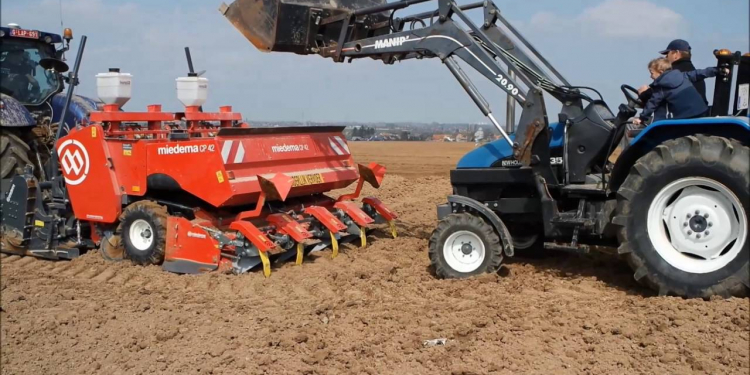Scotland has provided Ireland with the most significant proportion of the imported seed potatoes required

The area of seed potato crops for certification in Ireland increased to 299 hectares in 2021, helping to fill a gap left by a Brexit ban on imports from non-EU countries. This was a 29% increase in Irish seed potato production, over the previous five years. The average area of seed potatoes certified in Ireland for the years 2016 to 2020 was 231 hectares, ranging from 203 hectares in 2019 to 253 in 2016.
Over the same period, the quantity of seed potato certified by the Department of Agriculture ranged from 2,123 tonnes in 2020 to 3,308 tonnes in 2016. In the same years, between 2,990 (in 2016) and 4,015 tonnes (in 2020) of seed potato were imported from Scotland. But with a reduction in imports due to Brexit, Agriculture Minister Charlie McConalogue said his officials are monitoring the area of Irish seed potato crops to be entered for certification in 2022.
In the Dáil, he promised that his department will make adequate staff resources available for inspection and certification of seed potato crops, if there is another significant increase in the area of seed potatoes entered for certification in 2022. Answering a question from Cavan-Monaghan Sinn Féin TD Matt Carthy, he said figures for the quantity of seed potato imported from Scotland in 2021 are not currently available.
“I am very much aware of the impact of Brexit on the seed potato sector and am committed to the development of this sector.”
Meanwhile, following a recent visit to the Meade Potato Company in Lobinstown, Co Meath, Sinn Féin MEP Chris MacManus has written to European trade commissioner Valdis Dombrovskis to raise the concerns of Irish potato growers. He said: “EU Plant Health Regulation 2016/2031 prohibits the import of seed potatoes into EU member states from third [non-EU] countries other than Switzerland. “As Scotland is now a third country, a consequence of this regulation is that imports of seed potatoes are now prohibited. This situation is obviously creating significant disruption in the previously unhindered trade.”
“My understanding is that the only way this can be rectified is by recognition of the UK’s phytosanitary standards as equivalent. “To date, the British government has refused the EU’s request to agree to the dynamic alignment of standards, in exchange for the equivalence recognition, and this had led to a stalemate in talks.”
However, Mr MacManus said the Irish seed industry is not in a position, at present, to supply the entire national requirement. In recent years, Britain, but mainly Scotland, has provided Ireland with the most significant proportion of the imported seed required. He said the impact of the breaking of this supply chain is expected to have dramatic consequences in 2022.
“I made it clear to the commissioner that everything must be done in the current talks to reach an immediate solution.” Mr McConalogue has confirmed that the import of seed potatoes is currently prohibited, due to Britain’s new status as a “third country”. He also revealed in the Dáil that Ireland is the only EU state designated a “high health status” under EU legislation for the growing of seed potatoes.
“Notwithstanding the challenges, I am firmly of the view that there is significant potential to increase the production and supply of Irish grown seed potatoes. I am committed to further developing this sector,” he said. “This potential can only be achieved through close collaboration and full buy-in within the sector. I consider an industry-led approach, supported by DAFM, will be the most viable sustainable approach.”








